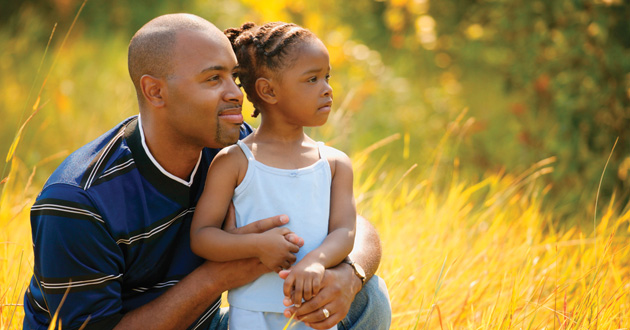3 life-changing things you should tell your kids every day

My 7-year-old son is like a lot of boys his age—energetic, jovial and somewhat loud.
He also has this peculiarity that is prominent among his peers: He pretends he doesn’t like to be praised.
“Great job, son!” I’ll tell him—to which he responds with a shrug of embarrassment or a stare of indifference.
But I know my words impact him—greatly.
One time he and I were having a candid father-son talk when I—unwisely—told him that the Bible says I should love his mom more than I love him. Oh, sure, it was a super-dumb thing to say, even though it had a biblical basis (Ephesians 5) and was factually true. But his 7-year-old heart wasn’t ready to process that, and he went to his room and sobbed. I nearly cried, too.
Sociologists have conducted dozens of studies demonstrating the power of words, but Scripture—more than 2,000 years ago—beat social science to the punch.
“Gracious words are like a honeycomb, sweetness to the soul and health to the body,” Proverbs 16:24 tells us.
If we were to analyze the thousands of words we say each day to our children, would they be mostly negative (“I can’t believe you did that!”) or positive (“let’s clean that up together”)? Our words, both good and bad, shape our children in the same manner the talented potter molds the unformed clay.
My wife and I have become intentional in recent months about using more positive words around our children, and we’ve seen our home become an even happier one. The results, though, aren’t always seen overnight. Just as honeycomb and other healthy foods don’t lead to instant good health, sometimes our words have to be sprinkled on our children each day and every week, until months later we see fruit—whether that is obeying better, treating their siblings and friends better, or even making better grades.
Any list of “things to tell your kids every day” could be lengthy, but for me, three of them rise to the top. All total, it’s 10 words:
1. “I love you.” Carey Casey of the National Center for Fathering says when he gives lectures to dads, only 3 percent to 4 percent will raise their hands saying their father said “I love you” on a consistent basis. How tragic! Children need to hear “I love you” because they need to know they’re wanted, they’re supported, they’re treasured. They need to know they’re loved … unconditionally. A few months back I started writing small “I love you” notes for my children in the morning if they were asleep when I left. Know what? Those notes were a big hit—so much so that the kids now complain when I forget.
2. “I’m proud of you.” There’s actually a debate among so-called parenting experts as to whether these four words should ever be said to children, and the argument boils down to this: We shouldn’t praise our children. Hogwash. In an age of hyper-bullying and teasing, kids need affirmation. Adults enjoy hearing “good job” when they do something worthy of notice. So why wouldn’t our children? The Bible even affirms it (Matthew 25:21). I don’t believe in praising my kids for, say, eating pie, but an “I’m proud of you” is certainly warranted each day, even for something as simple as building a nice-looking Lego set.
3. “God loves you.” Without God’s love there would be, well, no love. Think about it: God … created … love. Yes, we must tell our kids that we love them, but that’s not enough. That’s because we won’t always be there for them—not each moment of every day and certainly not for their lifetime—and because, well, we are incapable of loving as God loves. If you’re stumped how this one fits into a daily conversation, simply sneak it there at bedtime: Mommy loves you, Daddy loves you, God loves you. And if your kid asks if Daddy loves Mommy more than all of the children, well, just change the subject.
— by Michael Foust
Foust is the father of four small children and blogs about parenting at michaelfoust.com.





